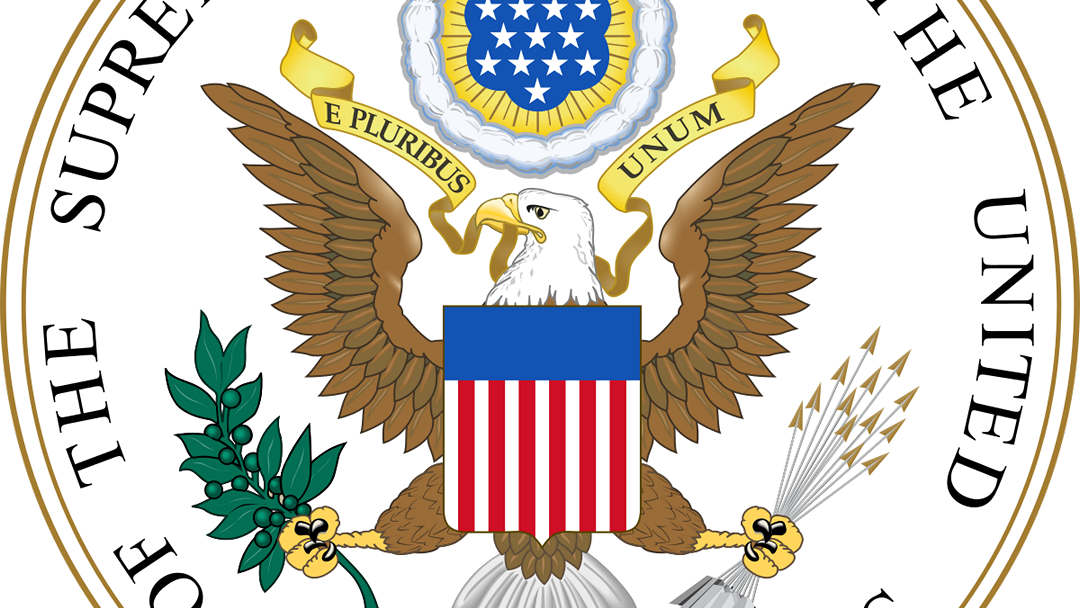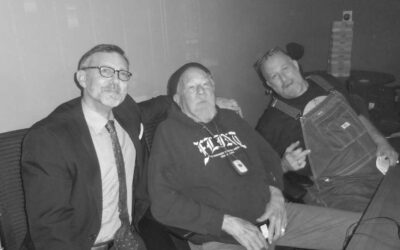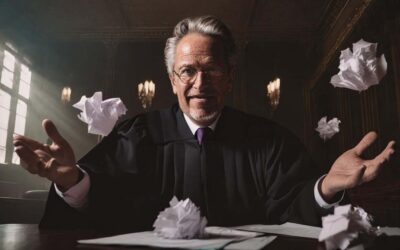The US Supreme Court will hear oral arguments by telephone conference on May 4, 5, 6, 11, 12 and 13 in a limited number of previously postponed cases. The following cases will be assigned argument dates after the Clerk’s Office has confirmed the availability of counsel:
18-9526, McGirt v. Oklahoma
19-46, United States Patent and Trademark Office v. Booking.com B.V.
19-177, Agency for International Development v. Alliance for Open Society International, Inc.
19-267, Our Lady of Guadalupe School v. Morrissey-Berru, and 19-348, St. James School v. Biel
19-431, Little Sisters of the Poor Saints Peter and Paul Home v. Pennsylvania, and 19-454, Trump v. Pennsylvania
19-465, Chiafalo v. Washington
19-518, Colorado Department of State v. Baca
19-631, Barr v. American Association of Political Consultants, Inc.
19-635, Trump v. Vance
19-715, Trump v. Mazars USA, LLP, and 19-760, Trump v. Deutsche Bank AG
In keeping with public health guidance in response to COVID-19, the Justices and counsel will all participate remotely. The Court anticipates providing a live audio feed of these arguments to news media. Details will be shared as they become available.
The Court Building remains open for official business, but most Court personnel are teleworking. The Court Building remains closed to the public until further notice.
The Court will use a teleconferencing system that will call counsel the morning of argument. All counsel for the cases to be argued that day will be called simultaneously at approximately 9:15 a.m. and will all be placed on a conference call with the Clerk of the Court, Scott Harris, to receive any last-minute instructions and to ask any remaining questions they may have. Once that briefing is completed, the phone lines for counsel will be muted, and counsel will remain on this same line until approximately 9:50 a.m. At that time, counsel will all be moved to the main conference call to await the beginning of argument.
At 10 a.m., the Justices will enter the main conference call, and the Marshal of the Court, Pamela Talkin, will cry the Court. The Chief Justice will call the first case, and he will acknowledge the first counsel to argue. Following the usual practice, the Court generally will not question lead counsel for petitioners and respondents during the first two minutes of argument. Where argument is divided and counsel represents an amicus or an additional party, the Court generally will not ask questions for one minute. At the end of this time, the Chief Justice will have the opportunity to ask questions. When his initial questioning is complete, the Associate Justices will then have the opportunity to ask questions in turn in order of seniority. If there is time remaining once all Justices have had the opportunity to question counsel, there may be additional questioning.
Once the time for the first counsel’s argument has expired, the Chief Justice will thank counsel for their argument, and acknowledge the next attorney. This process will continue until argument in the case is complete. Counsel for the petitioner in each case will be allotted three minutes for rebuttal. If there is a second case to be argued that day, the Chief Justice will call that case promptly after the end of the first argument, and the same process will be followed. The Marshal will announce the conclusion of arguments.
Monday, May 4: Booking.com trademark
10 a.m. ET: U.S. Patent and Trademark Office v. Booking.com B.V.
Summary: Generic terms cannot be trademarked, but Booking.com wants to trademark its name.This case is about whether generic terms can become protected trademarks by the addition of a generic “.com” domain.
Attorneys: Government attorney Erica Ross, Booking.com attorney Lisa Blatt.
Tuesday, May 5: Aid for HIV program
10 a.m.. ET: USAID v. Alliance for Open Society International
Summary: A new twist on an old case. In 2013, the justices said the government had violated the First Amendment by making funding for U.S. nonprofits contingent on those nonprofits trumpeting the government’s policy position on key issues. The case is back, but this time the question before the court is whether it’s unconstitutional if the government makes funding contingent for foreign-based affiliates of those same U.S. nonprofits.
Wednesday, May 6: Birth control access & Robocalls
10 a.m.ET: Little Sisters of the Poor v. Pennsylvania consolidated with Trump v. Pennsylvania
Summary: The court considers a Trump administration rule that would allow employers with religious or moral objections to birth control to limit their employees’ access to free birth control under the Affordable Care Act.
11 a.m. ET:Barr v. American Association of Political Consultants
Summary: In 1991, Congress passed a law that prohibits most robocalls. In 2015, Congress created an exception for government debt collection. Political groups, which want to use robocalls to raise money and turn out voters, are challenging the act as a violation of their First Amendment free speech rights.
Monday, May 11: Native American land & Religious freedom
10 a.m. ET: McGirt v. Oklahoma
Summary: On the surface, this case is about whether states, like Oklahoma, can prosecute members of Native American tribes for crimes committed in the historical bounds of tribal land. But it has implications for state power over thousands of miles of land in Oklahoma that has historically belonged to Creek, Cherokee, Seminole, Chickasaw and Choctaw tribes.
11 a.m.ET: Our Lady of Guadalupe School v. Morrissey-Berru consolidated with St. James School v. Biel
Summary: A freedom of religion case that tests whether lay teachers at parochial schools are protected by federal laws barring discrimination based on race, gender, age and disability; or whether, as the schools here maintain, their lay teachers are exempt from the protection of those laws. The case has potential implications for the millions of Americans employed not just by parochial schools but also by religiously affiliated hospitals, charities and universities.
Tuesday, May 12: Trump finances
10 a.m. ET: Trump v. Mazars consolidated with Trump v. Deutsche Bank AG; Trump v. Vance
Summary: These cases involve subpoenas for some of Trump’s pre-presidential financial records. Two consolidated cases — Trump v. Mazars and Trump v. Deutsche Bank — ask whether Congress has the power to subpoena the president’s personal records except during an impeachment proceeding; Trump v. Vance addresses a New York grand jury subpoena for those same records in the course of a criminal investigation.
Wednesday, May 13: Faithless electors
10 a.m. ET: Chiafalo v. Washington; Colorado Department of State v. Baca
Summary: Both cases involve so-called faithless electors — Electoral College delegates who fail to vote for the presidential candidate they were pledged to support. At issue is whether states can punish or remove such electors in order to ensure that the state’s electors accurately represent the state’s vote.
LINKS
|
Date Posted |
Subject |
|
February 27, 2020 |
Trump v. Mazars (19-715), Trump v. Deutsche Bank AG (19-760) (Consolidated) |
|
February 27, 2020 | |
|
January 28, 2020 | |
|
December 10, 2019 | |
|
October 23, 2019 | |
|
August 02, 2019 | |
|
August 02, 2019 | |
|
August 02, 2019 |
Bostock v. Clayton Cty., GA (17-1618), Altitude Express v. Zarda (17-1623) (Consolidated) |
|
July 18, 2019 | |
|
March 14, 2019 | |
|
February 19, 2019 | |
|
February 19, 2019 | |
|
January 15, 2019 |








